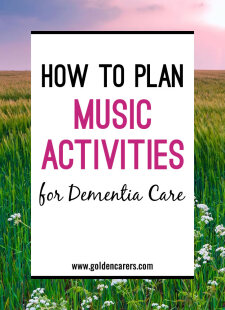14 tips for communicating with people who have hearing loss

6
0
2
25
View this page and thousands more!
Join Golden Carers for Unlimited Access
Join Now $59.99 USD/yr
“I LOVE your site and find it so useful.”
Shantell Kemp, Lifestyle CoOrdinator
Comments
6
to comment






Your focus is on caregivers for the elderly, of course, but your tips apply to hearing loss in general. Most of the tips are spot-on. I'd put some of them differently, based on my own experience with bilateral hearing loss. I've also added an extra tip.
Tip 6: Don't assume that hearing aids restore normal hearing. Turning up the volume doesn't turn up the clarity. If they have to keep turning up the volume to hear you, it'll be as if you're shouting (see tip 1) and then every background noise will be louder too (see tip 9).
Tip 8: Make sure that any light sources are shining on your face, without shadows, instead of shining from behind you or casting shadows on your face. Even someone who has no training in lip reading can benefit from seeing your lips clearly.
Tip 12: Age aside, ANYONE with hearing loss might need more time to process what you're saying. It takes extra focus and cognitive effort just to listen. If they miss any words, they have to try to figure out from context what they missed, and then they have to piece together what you probably said. If they're struggling to piece it together, they start wondering if they misheard particular words or if you've changed the subject.
Here's a bonus tip, Tip 15: If they haven't heard you or understood you, repeat yourself, but make sure you've reviewed the other tips. A common problem is that people who start out enunciating in a conversational tone tend to lower their voices or speak faster as they continue. Beware of rephrasing: If they didn't understand you the first time, rephrasing could add to their confusion. They didn't know what you just said, and now you're saying something else. To them, you've moved on before they caught up. They now have even less context for understanding your rephrased version.
Thanks Jim for your tips this is great information and very valuable
Fantastic article. I am printing it off to add to our volunteers information.
Thanks so much for your feedback Lisa!
From Peter Kindermann, Germany
Hello Thalita,
I found Your article and the different proposals very interesting. Here a short report on my experience:
I have to look after an older women (92 years old), with whom the communication is practically impossible because she hears very, very bad. That’ s why I startet the little communication we have in a written form.
.. I write a very short sentence with an edding pencil on paper and
.. then I show it to Anna (her eyes are still very good)
... and she answers with yes, no or short sentences.
...This way I can have at least a minimum communication.
I am very happy having found this possibility to communicate with Anna, who can’t work with a hearing apparatus.
This for today.
Hoping to see you end of October in Australia
With kind regards
Uncle Peter
Thank you for sharing your experience Peter! This is a wonderful idea, Anna is lucky to have you! x